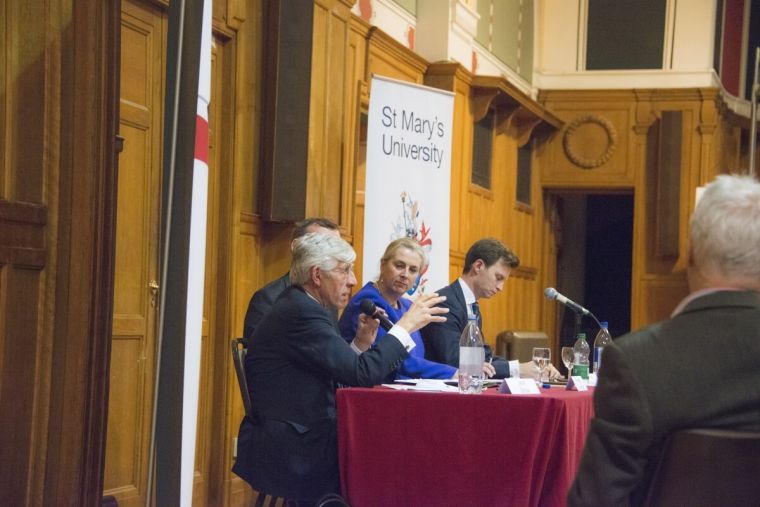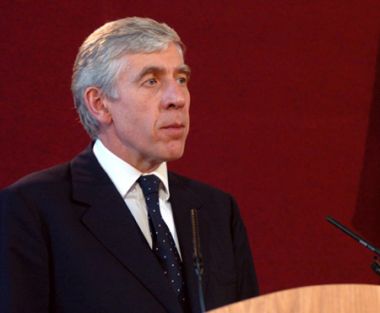Free speech must be limited says Jack Straw
Freedom of speech must be limited, Jack Straw, the former cabinet minister said in a debate tonight.
Straw, who served in the cabinet for 13 consecutive years under Tony Blair and Gordon Brown, spoke in a panel debate on freedom of speech versus respect for religion. A Christian, the former justice secretary spoke of the need to curtail free speech in a stable society.

"We have to have a maxim of freedom of speech," he said, "but you also have to bear in mind the need to create a stable and harmonious society.
"That necessarily must place some restriction on freedom of speech."
The debate, run by St Mary's University and The Tablet, addressed the question of what is the right balance between free speech and religious respect.
"Stable societies," said Straw, "are the ones that have found a decent balance between freedom of speech and right to practice religion."
The other panellists included British diplomat Francis Campbell as well as academic Adrian Pabst, both of whom broadly agreed with Straw.
"We should approach the right to free speech from a position of solidarity," said Campbell, who comes from an Irish Catholic background.
"My thought is not to uphold free speech in an absolutist way," he said.
"It is not a limitless right. Does it incite hatred or violence? Does it defame?"
Pabst also agreed with the former Labour MP as he pointed out free speech "can't be sheer limitless self-expression."
"There are obvious limits," he said.
The debate comes after Prime Minister David Cameron made a statement to the House of Commons where he promised to tackle extremism at home as well abroad in Syria.

"That means going after both violent and non-violent extremists," said Cameron.
"Those that sow the poison but stop short of promoting violence are part of the problem," he said.
Christian lobby groups have warned that extremism disruption orders (EDOs), which are part of the government's plan to tackle terrorism, will also target Christians and other faith groups in a crack down on free speech.
However Straw said he understood what the Prime Minister was trying to do.
"I don't want to see a limit on discourse but I do want to see rather less terrorists," said the former foreign and home secretary.
The tension between freedom of speech and religious respect came to the fore after Charlie Hebdo, a French satirical publication published cartoons of the prophet Mohammed, an act which Muslims consider highly offensive. In response gunmen attacked the magazine's offices killing 11 people and injuring 11 more.
In reference to the attacks, Campbell questioned the use of free speech to deliberately offend.
"Why would you want to take one of most creative inventions we have and use it to deliberately offend?" said the former ambassador to the Holy See.
"That is not enhancing the gift of freedom of expression."











